The Importance of Gardening for Kids: Building Life Skills and Connecting with Nature
Gardening is often seen as a calming hobby, a great way to relax, connect with nature, and grow something beautiful. But did you know that gardening is also an incredibly valuable activity for children? Whether you have a small balcony garden, a backyard plot, or just a few pots, gardening with kids offers endless benefits that go far beyond just planting seeds and watering plants. It’s a hands-on way to teach children about responsibility, science, and nature, all while fostering creativity and building strong family bonds.
In this blog post, we’ll explore the many reasons why gardening with kids is not just fun, but also incredibly important for their physical, emotional, and intellectual development. Let’s dig into the dirt and discover how gardening can make a lasting impact on kids!
1. Fosters a Connection with Nature
In today’s digital age, many kids spend much of their time indoors, glued to screens. Gardening offers a fantastic opportunity to get them outside and connect with the natural world. It provides an immersive experience where children can see, touch, and feel the earth, while witnessing the growth and life cycle of plants. Whether it’s seeing a seed sprout or a flower bloom, gardening helps kids develop a deeper appreciation for nature.
Through gardening, children also learn to respect the environment and the importance of sustainable practices. They get to observe firsthand how plants rely on water, sunlight, and healthy soil to grow. This connection can cultivate a sense of responsibility toward the planet and a lifelong desire to protect it.
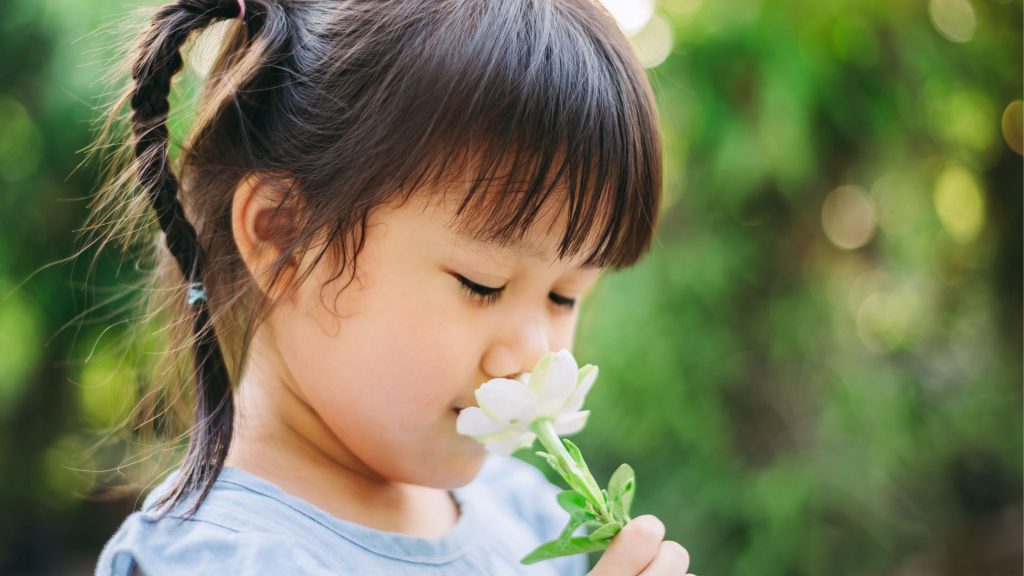
2. Boosts Physical Health
Gardening is not only a great way to connect with nature, but it also offers numerous physical benefits. It’s a fun, hands-on activity that encourages kids to be physically active, which is especially important in an age when children are increasingly sedentary. Gardening requires actions like digging, planting, weeding, and watering, all of which help improve motor skills, strength, and coordination.
Spending time outdoors in the garden also gives kids exposure to fresh air and sunlight, which can contribute to healthier immune systems and improved mood. Plus, gardening helps kids develop healthy habits like regular physical activity and an appreciation for fresh, home-grown produce. These habits can carry over into other areas of life, leading to better overall health and wellness.
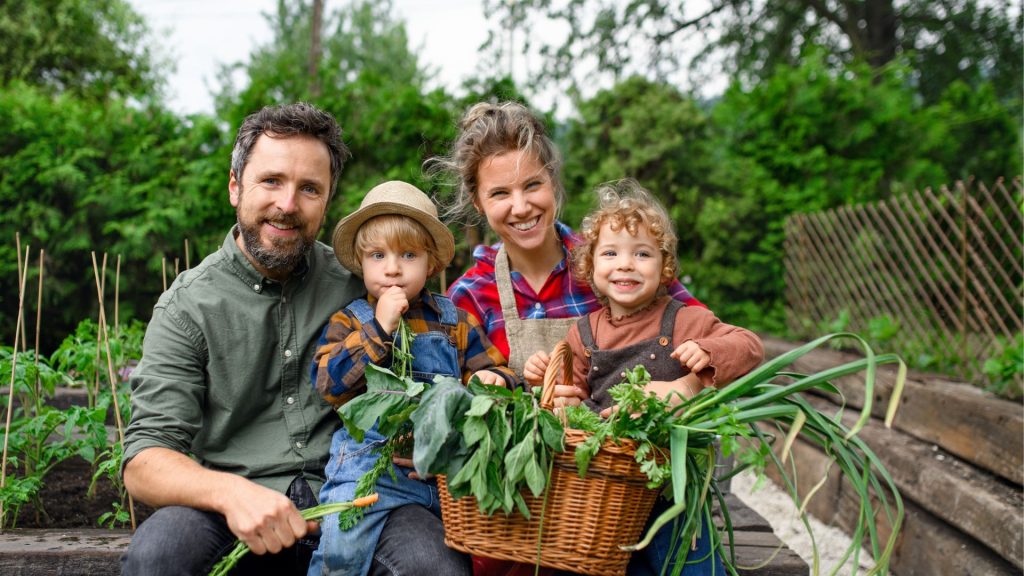
3. Promotes Emotional and Mental Well-being
Gardening has been shown to have a positive impact on emotional and mental health, not only for adults but for children as well. The process of planting and caring for a garden can help kids develop patience, resilience, and emotional regulation. They learn that plants grow slowly, and they must take care of them consistently over time in order to see the rewards.
Gardening also provides children with a sense of accomplishment. Watching something grow from a tiny seed to a full-grown plant gives kids a tangible result for their effort and attention, boosting their self-esteem and confidence. It also provides a calming, stress-reducing experience. Just like adults, kids can benefit from spending time in a quiet, peaceful environment where they can focus on something simple and beautiful.
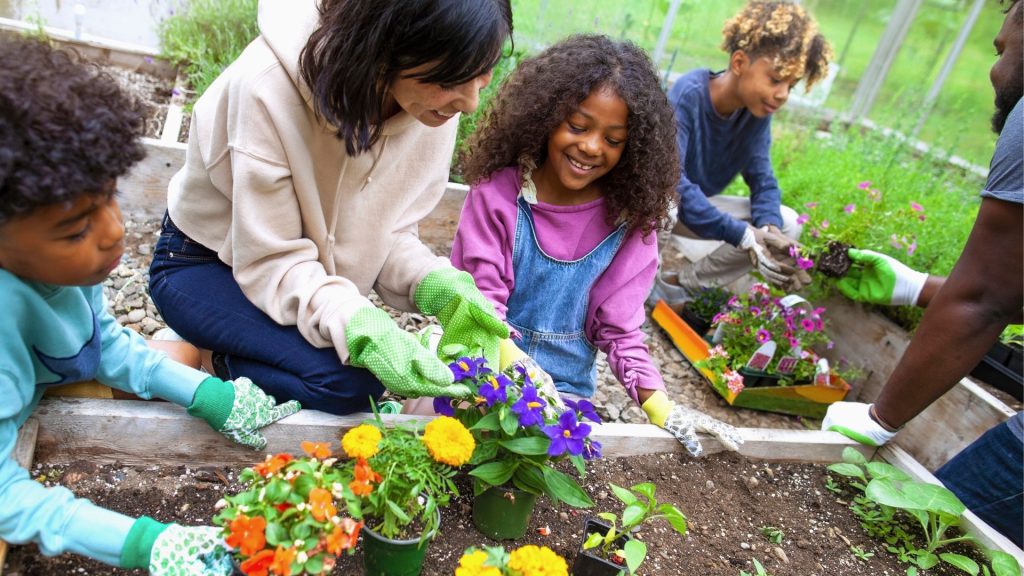
4. Teaches Responsibility and Patience
One of the key lessons children learn through gardening is responsibility. Plants need regular care in the form of watering, pruning, and ensuring they receive enough sunlight. Kids who help take care of a garden learn the importance of regular maintenance, and they quickly discover that plants depend on their actions to thrive. This teaches them accountability and the importance of sticking with tasks over time.
Gardening also teaches patience. Unlike many fast-paced activities in today’s world, gardening is a slow process. Plants grow at their own pace, and children must wait for them to develop. This can be an eye-opening experience for children used to instant gratification. It’s a wonderful opportunity to discuss concepts like time, growth, and the rewards that come from nurturing something over an extended period.
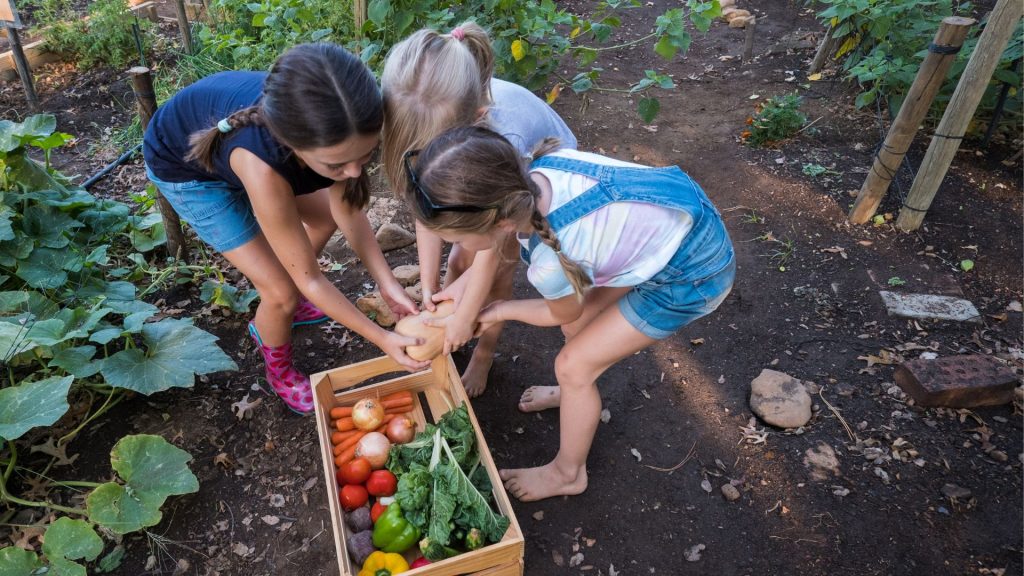
5. Encourages Healthy Eating Habits
Children are more likely to try new foods when they are involved in growing them. Gardening gives kids a hands-on understanding of where their food comes from, which can be an eye-opening experience. It also gives them a sense of pride in growing their own food, whether it’s a juicy tomato, crunchy cucumber, or fragrant herb.
Studies have shown that kids who garden are more likely to eat healthy foods, especially those that they’ve grown themselves. Gardening helps them develop a positive relationship with fresh produce, and the excitement of eating something they’ve nurtured from seed to harvest can make them more willing to try different fruits and vegetables. For picky eaters, this can be a great way to introduce new, healthy foods into their diet.

6. Enhances Cognitive and Academic Skills
Gardening offers valuable learning opportunities that promote cognitive development in children. As they plant seeds and watch them grow, kids are gaining an understanding of biological concepts like photosynthesis, plant life cycles, and ecosystems. Gardening also introduces them to important scientific concepts in a fun and engaging way.
Beyond science, gardening also enhances a variety of academic skills. Kids can learn about measurement, fractions, and estimation when they measure soil, space out plants, or figure out how much water is needed for different plants. These hands-on activities make learning more meaningful and memorable.
Additionally, gardening is an excellent way to encourage problem-solving skills. Sometimes plants don’t grow as expected, or pests invade the garden. Figuring out how to solve these problems and care for the plants encourages critical thinking and creativity. For children who enjoy hands-on activities, gardening is a natural way to support learning through trial and error.
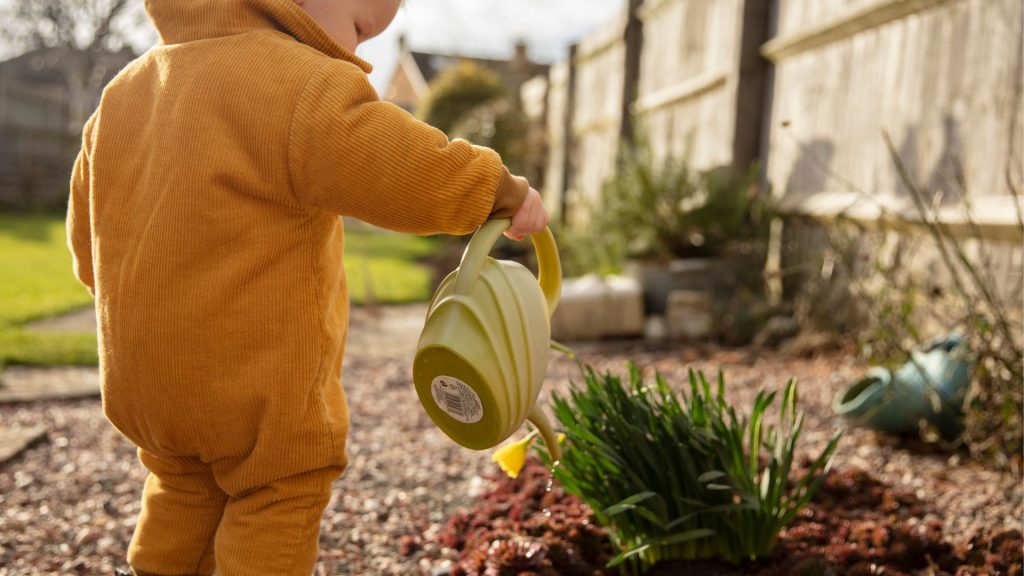
7. Encourages Creativity and Imagination
Gardening can also spark creativity and imagination in children. When designing a garden, kids get to make choices about which plants to grow, where to place them, and what types of decorations to add. If they’re creating a flower bed, vegetable garden, or even a fairy garden, their imagination will play a big role in how they shape the space.
Additionally, gardening provides an open-ended, experiential learning environment that fosters artistic expression. Kids can experiment with colors and textures in plant selections and use garden tools to build structures like raised beds or trellises. They can also incorporate decorations, like wind chimes or DIY garden markers, to give the garden a personal touch.
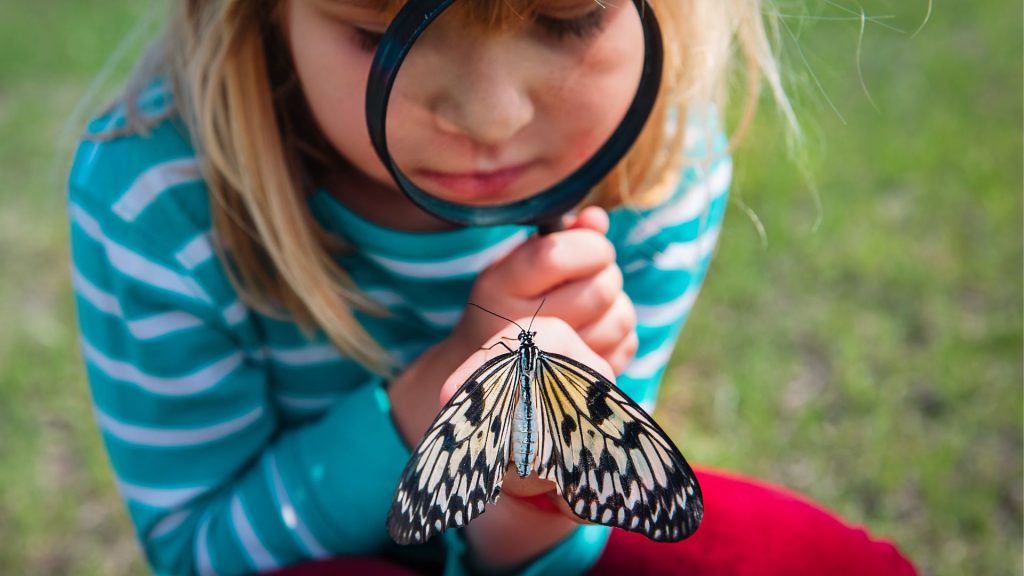
8. Strengthens Family Bonds
Gardening is an excellent family activity. It brings everyone together to work toward a shared goal, fostering cooperation and communication. Whether you’re planting a garden from scratch or maintaining an existing one, working together in the garden is a fun and rewarding experience. Kids learn the importance of teamwork, and families create memories while enjoying time outdoors.
Gardening also provides a platform for meaningful conversations. Parents and kids can discuss everything from plant growth to the weather, while enjoying the time spent together in the garden. It’s a wonderful opportunity to slow down, bond, and have quality time as a family.
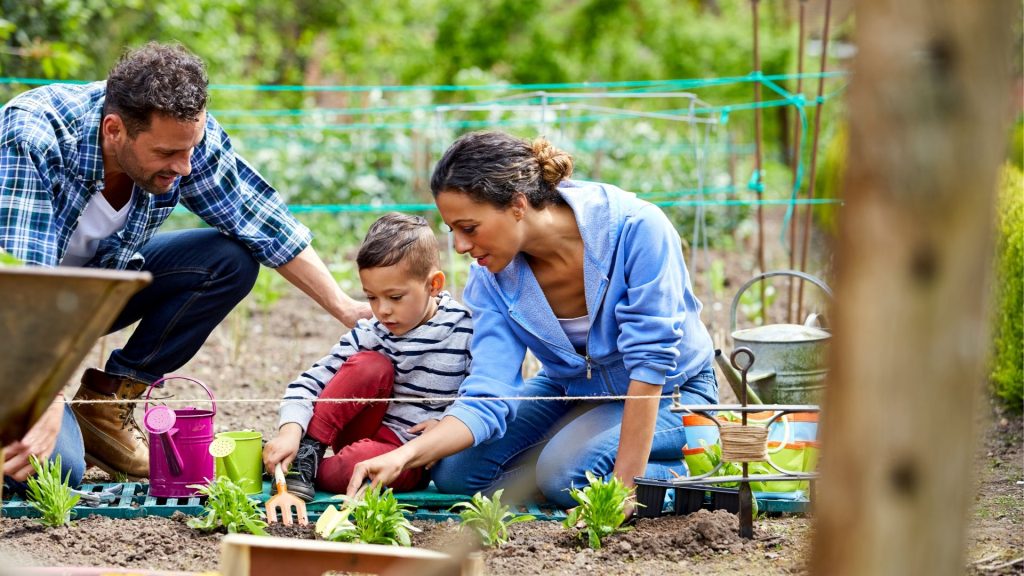
9. Teaches Sustainability and Environmental Stewardship
In today’s world, it’s more important than ever to teach children about sustainability and environmental responsibility. Gardening is one of the best ways to instill these values. Kids learn how plants rely on natural resources like water, sunlight, and healthy soil, and they develop an understanding of how their actions can affect the environment.
Through gardening, kids also learn about eco-friendly practices like composting, mulching, and water conservation. These lessons not only benefit the garden but also help foster a sense of stewardship for the planet.
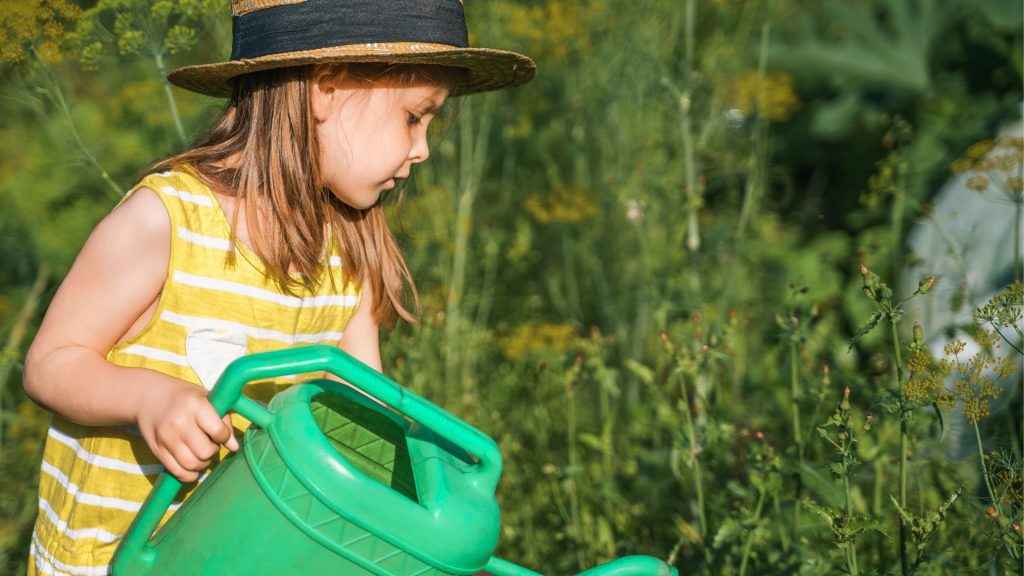
10. It’s Fun!
Last but certainly not least, gardening is simply a fun and enjoyable activity! There’s something magical about digging in the dirt, planting seeds, and watching them grow into something beautiful. Gardening with kids offers a break from the usual routine, and it gives children a sense of accomplishment that can’t be replicated by other activities.
The joy of harvesting home-grown produce, playing in the garden, and watching the plants change throughout the seasons is something that kids can treasure for years to come. Gardening gives them a hands-on experience that feels like play, but with valuable lessons wrapped in every activity.
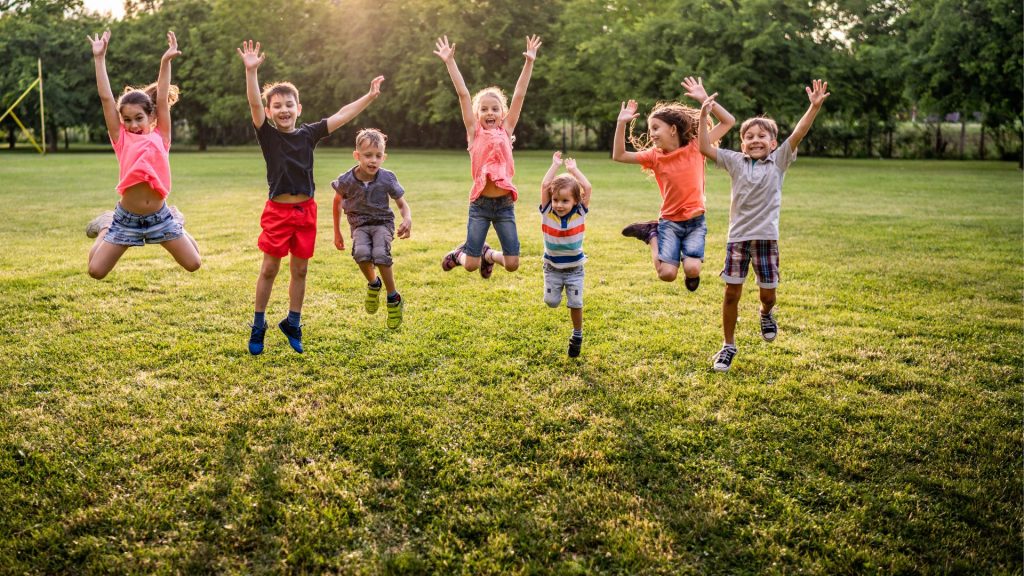
Sunny Thoughts
Gardening with kids is more than just a fun activity—it’s a powerful tool for teaching important life skills, nurturing creativity, and fostering a love for nature. It helps kids develop responsibility, patience, and a positive relationship with food and the environment. Whether you’re growing a small herb garden on a windowsill or transforming your backyard into a beautiful garden space, the benefits are endless.
If you haven’t already started gardening with your kids, now is the perfect time to dig in and watch them grow along with their plants! How has gardening with your children impacted your family? What’s your favorite gardening activity to do with kids? Share your thoughts in the comments below!







